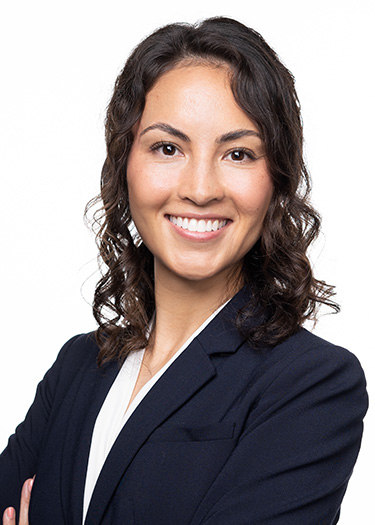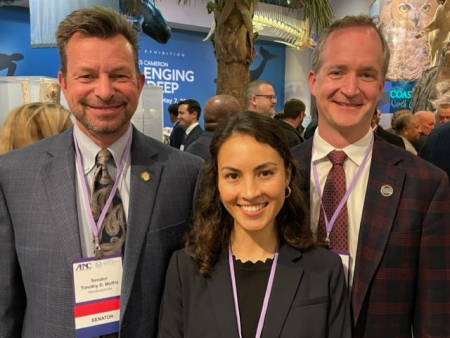

May 19, 2023

This article will appear in the upcoming issue of The North Carolina Family Physician.
It seems to be a common experience among my fellow medical students to feel awkward and out of place on a medical team. What doesn’t feel normal as a medical student is when your presence in a group setting piques everyone’s interest. This was the unexpected part of my experience standing with our state’s elected officials during my NCAFP health care leadership and policy elective.
The NCAFP leadership and staff provide this elective for fourth-year medical students, or those on a leave of absence, who are pursuing a career in Family Medicine. This is a monthlong experience which exposes students to organized medicine. If you’re like I was five months ago and unsure of what “organized medicine” really means, it refers to the result of physicians joining an organization to advocate for themselves and for their patients, alongside a network of passionate advocates who are not necessarily medically trained. These organizations include national societies like the American Academy of Family Physicians, the American Congress of Gynecologists and Obstetricians, and the American Academy of Pediatrics (AAP), but also local chapters like the North Carolina Medical Society and the NCAFP. While these societies provide timely information regarding current events in medicine and patient care education, they most notably represent the physician community during legislative sessions to ensure that physicians’ voices are heard before bills impacting patient care, scope of practice, and other medical concerns become laws. In this elective, students gain exposure to the work NCAFP is doing behind the scenes to support our state’s family physicians and their patients. These include exposure to various healthcare policy change initiatives underway in North Carolina and insight into legislative events that directly affect physicians.

I pursued this elective because of my interest in healthcare policy. My interest consisted of essentially no real experience with health policy, and instead was a general awareness of the major role politics plays in shaping health care for patients and providers alike. This experience level is acceptable, along with higher levels. However, a strong desire to glean the role physicians can play in healthcare policy and to understand those nuances is baseline. Other reasons to pursue this elective are to better understand the impact of healthcare policy issues on a state level and to better understand the process of making policy decisions.
During this elective, NCAFP Executive Vice President Greg Griggs and other leaders help identify your clinical interests as they relate to policy. Specifically, the NCAFP coordinates one-to-one meetings and conversations with various community leaders and advocates, notably physicians who fill a leadership role in your area of interest. To capitalize on this opportunity, I would encourage the interested student to reflect on their advocacy interests beforehand. The more precisely you pinpoint topics important to you, the more prepared you will be in structuring your elective time, as well as engaging in conversations with the state’s advocates and elected officials, with whom you will likely be interacting with.
I had a great time. You can consider me the newest, smiling member of the NCAFP fan-club. It was energizing to be surrounded by others who share my passion for primary care. My month exposed me to the multiple directions I can take as a future physician with respect to advocating for my patients, such as becoming an NCAFP board member, working for the state health department, or even running for office. I can now see the benefit and means of forming relationships with my county and state elected officials.
Back to my comment about feeling valuable as a medical student: I did not anticipate the sheer interest, dare I say excitement, that elected officials demonstrated when in the presence of a medical student. That’s why I urge all medical students to use their position to voice their professional concerns because your voice matters to the legislators! And last but not least, vote!!
Sheryl Fuehrer will graduate from the UNC School of Medicine in June 2023 and begin her residency at the Mayo Clinic School of Graduate Medical Education.